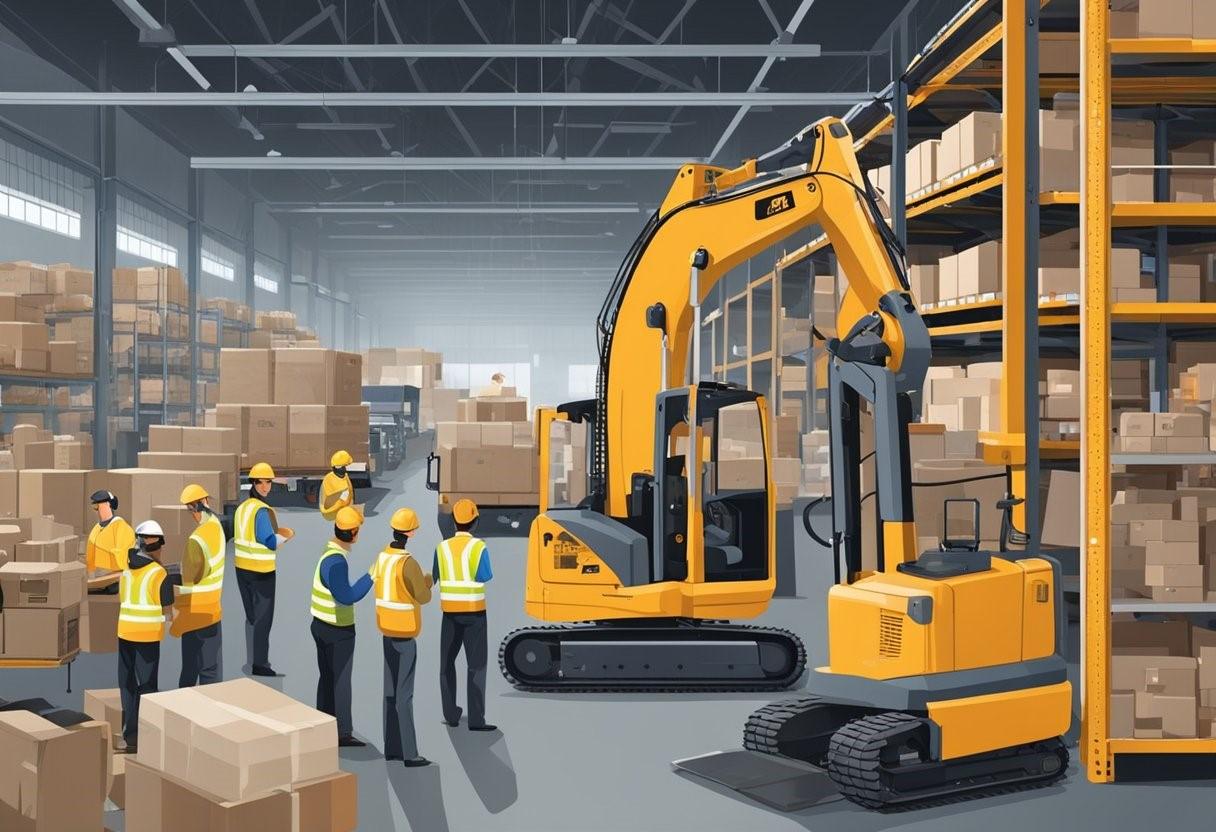Selling industrial equipment can be a challenging task, especially when it comes to sell machinery. It requires a deep understanding of the equipment, its features and benefits, as well as the industry it serves. With the right approach and strategies, however, selling industrial equipment can be a profitable venture.

One of the key aspects of selling industrial equipment is to have a clear understanding of the target market. This involves identifying the industries that require the equipment, the specific needs of the customers, and the competition. By understanding the market, a seller can tailor their approach to meet the needs of the customers and differentiate themselves from the competition.
Another important factor in selling industrial equipment is to have a strong online presence. With the increasing use of the internet and social media, having a website and social media pages can help a seller reach a wider audience and showcase their products. Additionally, having a strong online presence can help build credibility and trust with potential customers.
Understanding the Industrial Equipment Market
Market Trends
The industrial equipment market is constantly evolving and adapting to new technologies and innovations. One of the current trends in the market is the increasing demand for automation and digitization. Many companies are looking for equipment that can be controlled and monitored remotely, as well as machines that can collect and analyze data to improve efficiency and productivity.
Another trend in the market is the focus on sustainability and eco-friendliness. Buyers are looking for equipment that is energy-efficient and has a low environmental impact. This has led to the development of new technologies such as electric and hybrid machinery.
Buyer Profiles
Buyers in the industrial equipment market can come from a variety of industries and backgrounds. Some common buyer profiles include small business owners, large corporations, and government agencies. Each of these buyers has different needs and priorities when it comes to purchasing equipment.
Small business owners may be looking for affordable equipment that can help them increase productivity and efficiency. Large corporations may be more focused on advanced technology and automation. Government agencies may have specific regulations and requirements that equipment must meet.
Value Estimation
Determining the value of industrial equipment can be a complex process. Factors such as age, condition, and market demand can all affect the value of a machine. It is important for sellers to accurately estimate the value of their equipment in order to set a fair price and attract potential buyers.
One way to estimate the value of equipment is to look at similar machines that have recently sold in the market. Sellers can also consult with industry experts and appraisers to get a more accurate estimate of their equipment’s value.
Overall, understanding the current trends in the market, the different buyer profiles, and the process of value estimation can help sellers effectively sell their industrial equipment.
Strategies for Selling Machinery
Sales Channels
When it comes to selling machinery, there are several sales channels that can be utilized. One of the most common is through a dealer network. Dealers can provide access to a wider range of potential customers and can help facilitate the sale of machinery. Another option is to sell directly to end-users. This can be done through online marketplaces or by establishing a direct sales team.
Marketing Techniques
Marketing machinery requires a targeted approach. One effective technique is to create a website that showcases the machinery and its capabilities. It’s important to include high-quality photos and detailed descriptions of the machinery. Another technique is to create product videos that demonstrate the machinery in action. These videos can be shared on social media platforms and on the company website.
Pricing Strategies
Pricing machinery can be challenging as it requires balancing the cost of production with the desired profit margin. One common approach is to set prices based on industry standards and adjust as needed. Another approach is to offer financing options to customers, which can help make the machinery more affordable and increase sales.
Legal Considerations
When selling machinery, it’s important to consider legal requirements. This includes complying with safety regulations and obtaining any necessary permits or licenses. It’s also important to have contracts in place that clearly outline the terms of the sale and any warranties or guarantees offered.
By utilizing these strategies, companies can effectively sell their machinery to a wider range of customers and increase their sales and profits.



